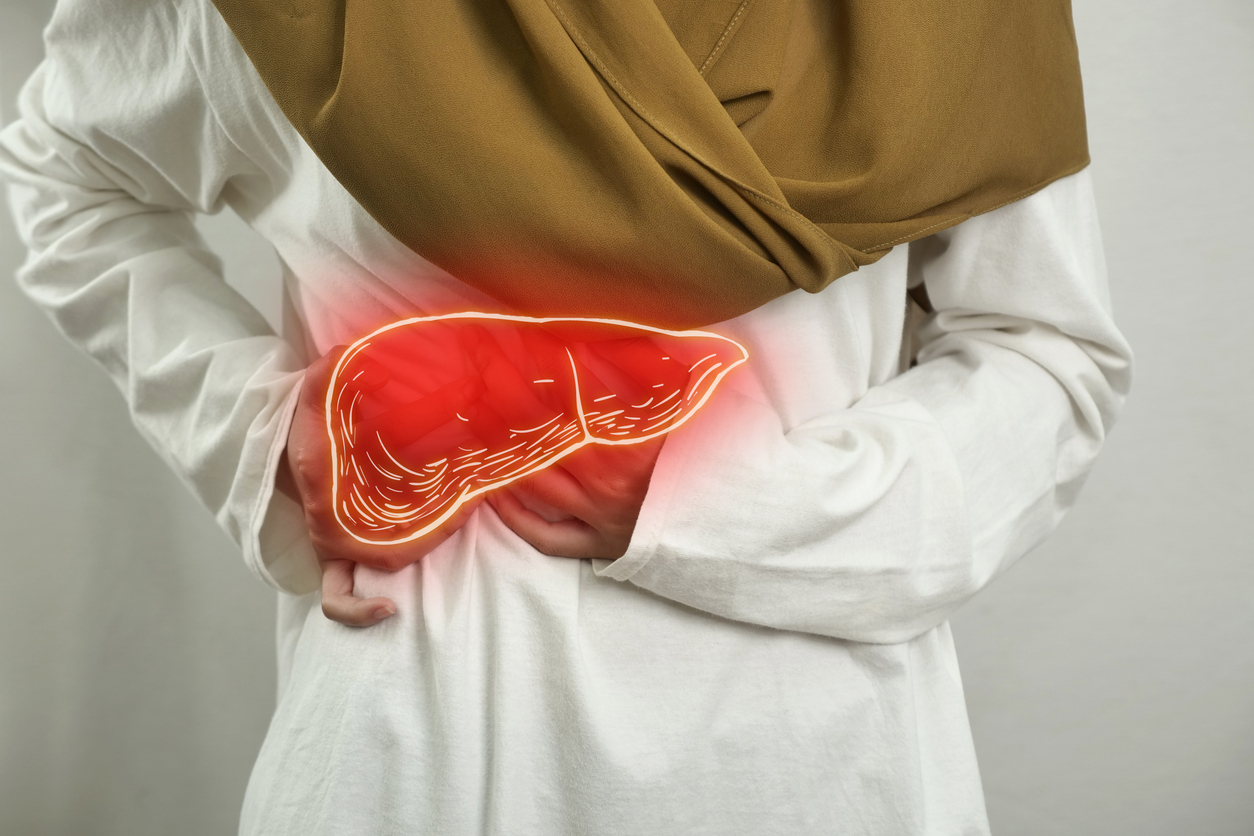2025-11-06
Prostate cancer and diet: which eating pattern helps with prevention?
Oncology
By Lila Rouland | Published on November 6, 2025 | 3 min read
Prostate cancer is the second most common cancer in men worldwide. Its incidence varies greatly depending on geography, ethnicity, and, most importantly, lifestyle factors, particularly diet. This review explores how fats, proteins, carbohydrates, vitamins, and phytonutrients influence the development and progression of prostate cancer. Although clinical data remain heterogeneous, growing evidence supports plant-based diets that are low in processed animal products. The goal is to identify dietary components that could slow prostate carcinogenesis.
Fats: finding the right balance between omega-3 and omega-6
Saturated and trans fats, typical of Western diets rich in meat, dairy products, and refined oils, are associated with increased oxidative stress, intraprostatic androgen levels, and inflammatory markers—all of which promote tumor proliferation. Conversely, omega-3 fatty acids (found in fatty fish) exert a protective effect by modulating inflammation and slowing tumor progression.
Proteins: red meat, eggs, dairy, and plant-based alternatives
Animal proteins—especially red meat, cholesterol-rich eggs, and dairy products (particularly whole milk)—increase IGF-1 levels, a growth factor involved in prostate cell proliferation. Studies show correlations between their consumption and a higher risk of recurrence or disease progression. In contrast, plant proteins, especially those derived from soy (isoflavones), demonstrate cytotoxic and antiandrogenic effects.
Carbohydrates: beware of refined sugars
Excessive intake of simple carbohydrates (sodas, pastries, white bread) promotes hyperinsulinemia, activates the IGF-1 signaling pathway, and increases chronic inflammation. In animal models, low-carbohydrate diets significantly reduced tumor volume.
Vitamins and minerals: limited benefits from isolated supplements
The roles of vitamins A, D, and E in prostate cancer prevention remain controversial. Excess calcium—especially from dairy products—may increase cancer risk.
In contrast, vitamins obtained from natural food sources offer better antioxidant synergy than those from supplements.
Phytonutrients: plant allies for prostate health
Several bioactive compounds demonstrate anticancer potential:
Finally, plant-based or Mediterranean diets (rich in fruits, vegetables, fish, and olive oil) are consistently associated with a lower incidence of prostate cancer and improved survival. Targeted prevention: could it all start on the plate? Prostate cancer—driven by hormones, oxidative stress, and inflammation—may be partially modifiable through targeted dietary choices. This review highlights that a diet low in saturated fats, refined sugars, and animal proteins, but rich in plant foods, phytonutrients, and omega-3 fatty acids, has beneficial effects at multiple stages of carcinogenesis. However, the heterogeneity of human study results reflects differences in methodological design, population characteristics, and the complexity of nutritional interactions.
To date, no single nutrient can be recommended for prevention, but an overall balanced, anti-inflammatory, and antioxidant diet appears to be the most effective strategy. Future research should better integrate individual contexts (genetic, cultural, and dietary) to develop personalized nutritional recommendations in oncology care.
About the author – Lila Rouland
With dual expertise in science and marketing, Lila brings her knowledge to the service of healthcare innovation. After five years in international academic research, she transitioned into medical and scientific communication within the pharmaceutical industry. Now working as a medical writer and content developer, she is committed to highlighting scientific knowledge and conveying it to healthcare professionals with clarity and relevance.
Prostate cancer is the second most common cancer in men worldwide. Its incidence varies greatly depending on geography, ethnicity, and, most importantly, lifestyle factors, particularly diet. This review explores how fats, proteins, carbohydrates, vitamins, and phytonutrients influence the development and progression of prostate cancer. Although clinical data remain heterogeneous, growing evidence supports plant-based diets that are low in processed animal products. The goal is to identify dietary components that could slow prostate carcinogenesis.
Does what we eat promote inflammation and tumor growth?
Fats: finding the right balance between omega-3 and omega-6
Saturated and trans fats, typical of Western diets rich in meat, dairy products, and refined oils, are associated with increased oxidative stress, intraprostatic androgen levels, and inflammatory markers—all of which promote tumor proliferation. Conversely, omega-3 fatty acids (found in fatty fish) exert a protective effect by modulating inflammation and slowing tumor progression.
Proteins: red meat, eggs, dairy, and plant-based alternatives
Animal proteins—especially red meat, cholesterol-rich eggs, and dairy products (particularly whole milk)—increase IGF-1 levels, a growth factor involved in prostate cell proliferation. Studies show correlations between their consumption and a higher risk of recurrence or disease progression. In contrast, plant proteins, especially those derived from soy (isoflavones), demonstrate cytotoxic and antiandrogenic effects.
Carbohydrates: beware of refined sugars
Excessive intake of simple carbohydrates (sodas, pastries, white bread) promotes hyperinsulinemia, activates the IGF-1 signaling pathway, and increases chronic inflammation. In animal models, low-carbohydrate diets significantly reduced tumor volume.
Vitamins and minerals: limited benefits from isolated supplements
The roles of vitamins A, D, and E in prostate cancer prevention remain controversial. Excess calcium—especially from dairy products—may increase cancer risk.
In contrast, vitamins obtained from natural food sources offer better antioxidant synergy than those from supplements.
Phytonutrients: plant allies for prostate health
Several bioactive compounds demonstrate anticancer potential:
- Lycopene (tomato): powerful antioxidant linked to reduced PSA and tumor risk.
- Catechins (green tea): anti-inflammatory and pro-apoptotic effects on cancer cells.
- Indoles (broccoli, cabbage): protection against aggressive cancer forms.
- Allium compounds (garlic, onion): proven antiproliferative effects.
- Curcumin (turmeric): slows tumor growth, especially in nano-formulations.
Finally, plant-based or Mediterranean diets (rich in fruits, vegetables, fish, and olive oil) are consistently associated with a lower incidence of prostate cancer and improved survival. Targeted prevention: could it all start on the plate? Prostate cancer—driven by hormones, oxidative stress, and inflammation—may be partially modifiable through targeted dietary choices. This review highlights that a diet low in saturated fats, refined sugars, and animal proteins, but rich in plant foods, phytonutrients, and omega-3 fatty acids, has beneficial effects at multiple stages of carcinogenesis. However, the heterogeneity of human study results reflects differences in methodological design, population characteristics, and the complexity of nutritional interactions.
To date, no single nutrient can be recommended for prevention, but an overall balanced, anti-inflammatory, and antioxidant diet appears to be the most effective strategy. Future research should better integrate individual contexts (genetic, cultural, and dietary) to develop personalized nutritional recommendations in oncology care.
Read next: Omega-3 fatty acids: a nutritional lever against prostate cancer
About the author – Lila Rouland
Doctor of Oncology, specialized in Biotechnology and Management

Last press reviews
Liver, sugar, and pills: who's in control?

By Ana Espino | Published on February 4, 2026 | 3 min read<br>
Endometrial cancer: Is PARP bringing new hope?

By Ana Espino | Published on February 3, 2026 | 3 min read<br>
